Humans
Sign up for our newsletter
We summarize the week's scientific breakthroughs every Thursday.
-
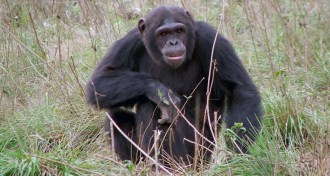 Anthropology
AnthropologyChimps prefer roasted potatoes, hinting at origins of cooking
Chimps really dig roasted potatoes, suggesting cooking arose millions of years ago.
By Bruce Bower -
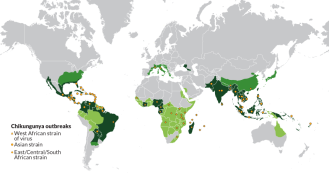 Health & Medicine
Health & MedicineChikungunya is on the move
The chikungunya virus, which wreaks havoc on joints, has spread via mosquitoes in tropical regions. Now it has found a way to hijack a second mosquito, posing a threat to people in Europe, North America and China.
By Nathan Seppa -
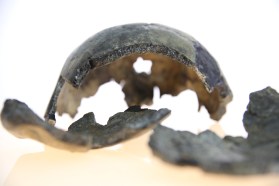 Humans
HumansHow Homo sapiens became world’s dominant species
'First Peoples' dispels old ideas about human evolution and tells an updated tale of how Homo sapiens came to dominate the world.
By Erin Wayman -
 Science & Society
Science & SocietyAttempt to shame journalists with chocolate study is shameful
Journalist John Bohannon set out to expose poor media coverage of nutrition studies. In the process, he lied to his own profession and the public.
-
 Health & Medicine
Health & MedicineMice become thin-skinned in space
Long trips in space may thin the skin.
By Meghan Rosen -
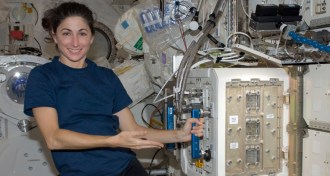 Health & Medicine
Health & MedicineMice grow a thinner skin during long stays in space
Mice that spent three months in space had thinner skin and extra hair growth compared with rodents that were grounded on Earth.
By Meghan Rosen -
 Health & Medicine
Health & MedicineOne in 10 people with tattoos experience rashes, scarring or other problems
Tattoos carry risk of long-term rash; red ink may be most irritating color.
By Meghan Rosen -
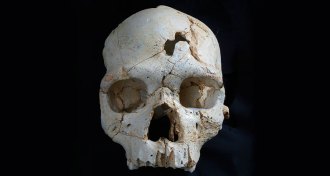 Anthropology
AnthropologyDouble blow to skull is earliest evidence of murder, a 430,000-year-old whodunit
A 430,000-year-old hominid skull shows signs of murder, making it the earliest suspected homicide.
By Julia Rosen -
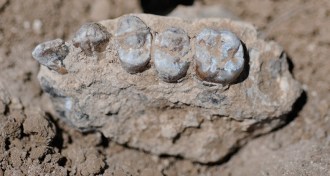 Humans
HumansFossils suggest another hominid species lived near Lucy
Fossil jaws dating to over 3 million years ago may add a new species to the ancient hominid mix.
By Bruce Bower -
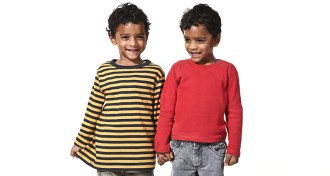 Genetics
GeneticsGenes and environment balance each other
Genes and environment have equal influence on human traits.
-
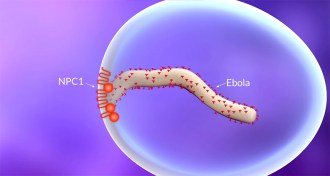 Health & Medicine
Health & MedicineEbola gatekeeper protein identified
Ebola’s ability to infect appears to depend on a key transport protein that guides the virus into cells.
By Meghan Rosen -
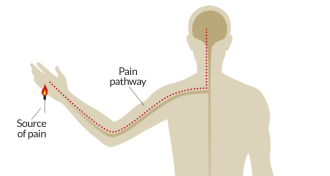 Neuroscience
NeuroscienceNo-pain gene discovered
Scientists have identified a new genetic culprit for the inability to perceive pain.